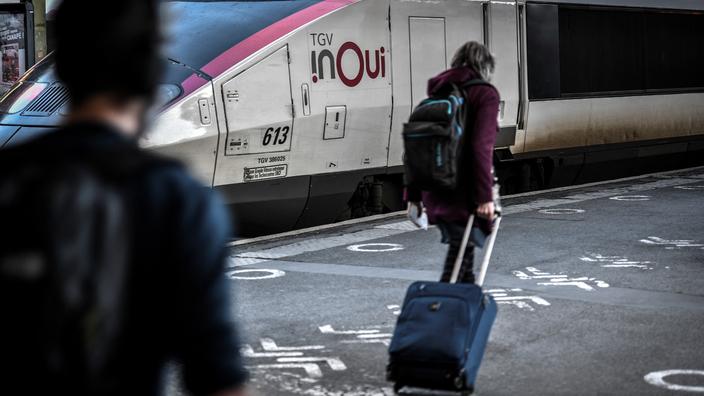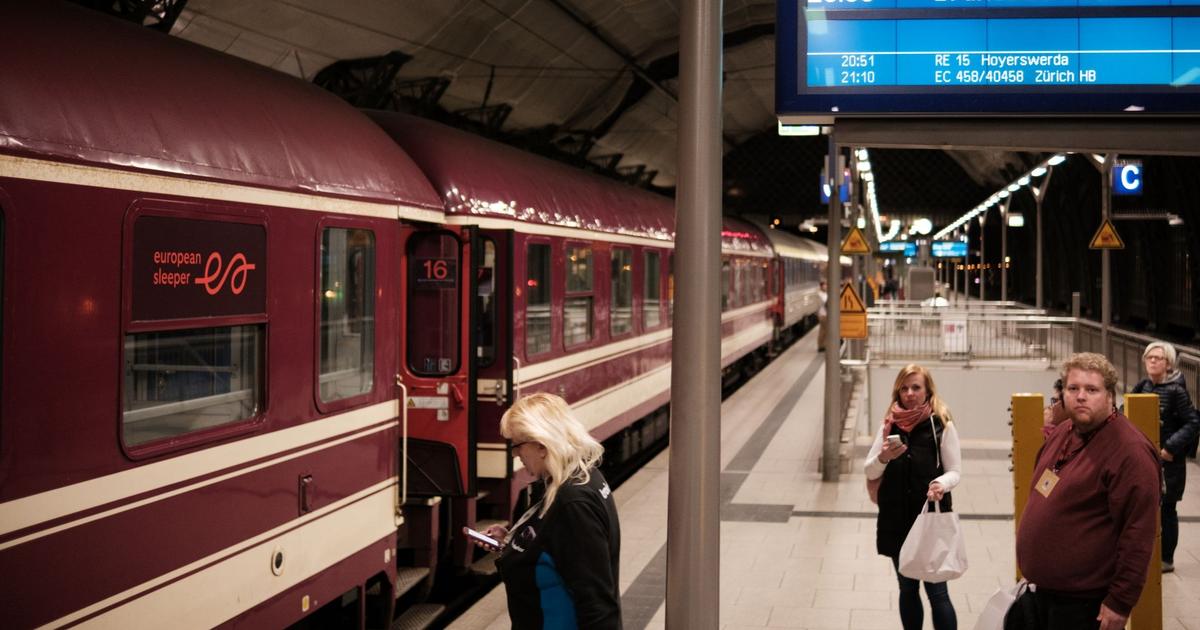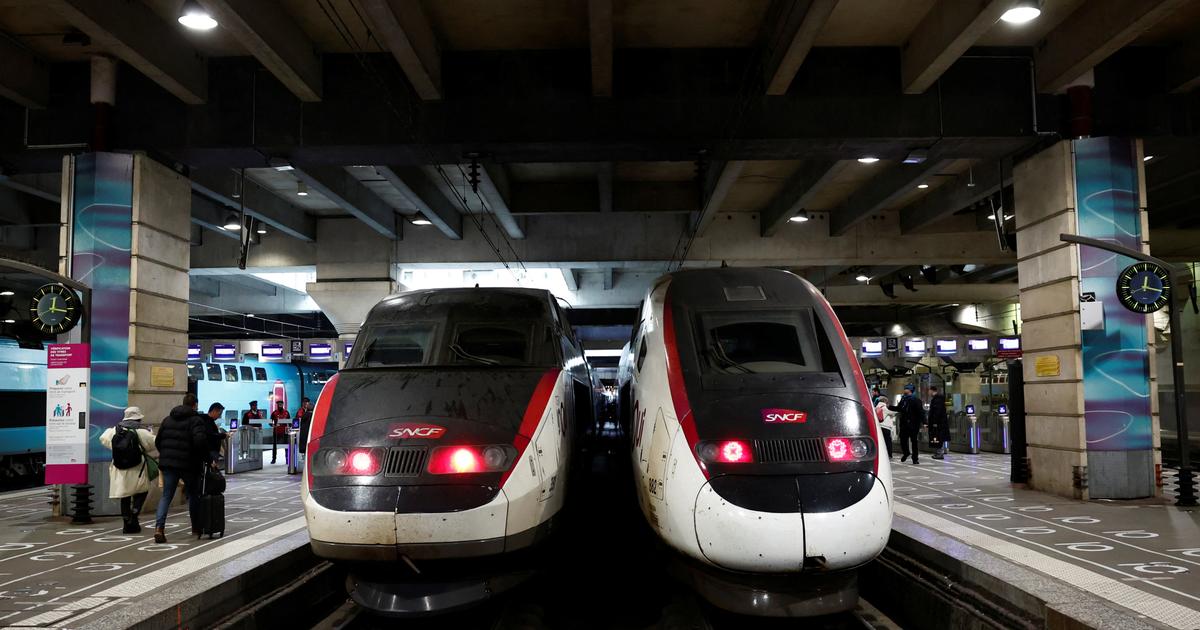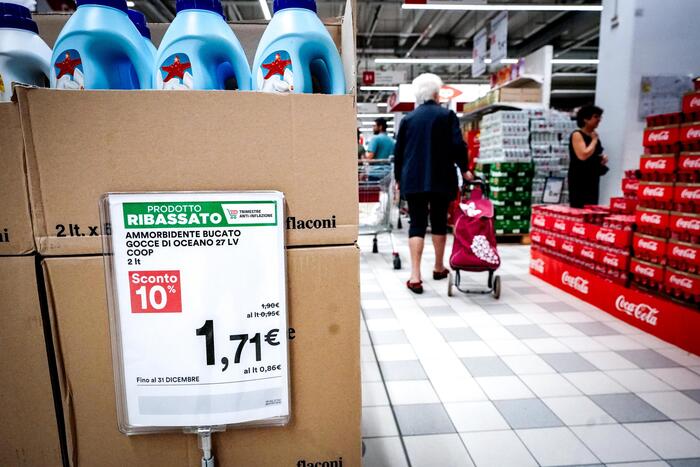The pandemic has taken a heavy toll on SNCF.
This Wednesday, the railway group presented results for the year 2020 at half mast: the Covid-19 epidemic and, to a lesser extent, the strikes against the pension reform have reduced the turnover of the giant of 14.2% compared to 2019, reaching 29.97 billion euros.
The consequences of the health crisis are estimated at 6.8 billion euros by the group, which emphasizes that this episode marked the "
strongest and most lasting halt ever
" by its teams.
Read also: Fret SNCF continues its slimming treatment so as not to disappear
Several indicators underline the heavy consequences of the epidemic: its net income plunges into the red, at -3 billion euros, and its net debt now stands at 38.1 billion euros, including the 25 billion euros taken back by the state in January.
In addition, "
international mobility is at a standstill and the French market is slowing down
", underlines SNCF.
Its high-speed rail activity was particularly hit by the pandemic, when the trains were at a standstill, even more than that of SNCF Réseau or SNCF Gares & Connections, which nevertheless saw commercial charges collapse.
On the passenger side, the decrease in traffic is 48% compared to 2019 for high-speed trains, including the Ouigo and TGV INOUi.
The decline is less marked but remains massive for Transilien (-45%), TER (-32%) and Keolis (-30%).
SNCF is pleased to have obtained the support of the State to get through this crisis, with a support plan and debt recovery.
At the same time, the group recalls having undertaken "
a set of new additional savings measures
", for around 2.5 billion euros, including the abandonment of investment projects or budget cuts.
So many measures that have made it possible to "
limit the impact of the crisis
" on its balance sheet.
SNCF defends its "
resilience
"
The railway group believes, however, that its economic model showed its "
resilience
" last year: rail freight, whose turnover fell by 12%, limited the damage.
His company Geodis, for its part, has a positive balance sheet, up 4.5% over the year.
The support of regional and local executives also made it possible to attenuate the shock for the TER as well as Keolis.
In addition, SNCF recalls that each lifting of health restrictions was accompanied by "
successful restarts
", signs of "
the enthusiasm of the French for the train
": the TGV has thus rebounded strongly, after the first confinement, from 10% 80% attendance in a few weeks.
The rail group also intends to strengthen its international presence, notably via Keolis and Geodis.
A “
promising
”
dynamism
, illustrated by several contracts won in Copenhagen and London.
The group wants to project itself into the future
Despite an eventful year, SNCF is maintaining its ambitious objectives, announced in 2018. It notes "that
no redundancies have been or are being considered
" in its ranks, and expects, this year, a reduction of employment “
less than 2%
” in its railway activities, after 1% in 2020. The company is also pleased with its results in terms of professional equality between men and women.
With the support of the public authorities, its “
preserved
”
cash flow
and its savings measures, SNCF considers that it “
maintains its financial strength
”, despite the devastating effects of the crisis.
It now wishes to “
project itself into the future
”, by pursuing its environmental objectives, by increasing its use of renewable energies and by greening its diesel trains.
“
Hybrid TER, battery or hydrogen
” are expected from 2021, and the “
TGV of the future
” must arrive on the rails on the occasion of the Olympic Games of 2024, recalls the group.
“
We didn't just manage the crisis.
We have mobilized to prepare for the future by accelerating industrial and commercial transformation
, ”comments Group Chairman Jean-Pierre Farandou.
His company has "
demonstrated [its] capacity for resilience
" in recent months, and he wishes to prove its "
ability to offer tailor-made and competitive solutions to each competition for passenger rail activities in France
".
SNCF intends to become "
by 2030 a world champion of mobility
", both for passengers and for goods.
The coming months promise to be eventful, the crisis having profoundly changed the French lifestyle and transport habits.
Teleworking, opening up to competition, return of night trains ... These trends are "
also opportunities
", considers the group, on condition of adapting to them.
It is therefore working on a "
TGV tariff redesign project [...] to offer more legibility to travelers
".
The year 2021 should also see the emergence of “
new pro subscription offers, more flexible
” and more adapted to new ways of working.
The French rail champion also concocts a “
single application
”, grouping together all of its offers and services for greater efficiency.
The SNCF group is not the only transport player to view 2021 with a suspicious eye: the drop in the number of passengers "
will be sustainable
", estimated in January the head of the Union of public and rail transport. (UTP), Thierry Mallet.
And this, especially since the health situation remains particularly fragile, which can change at any time.









